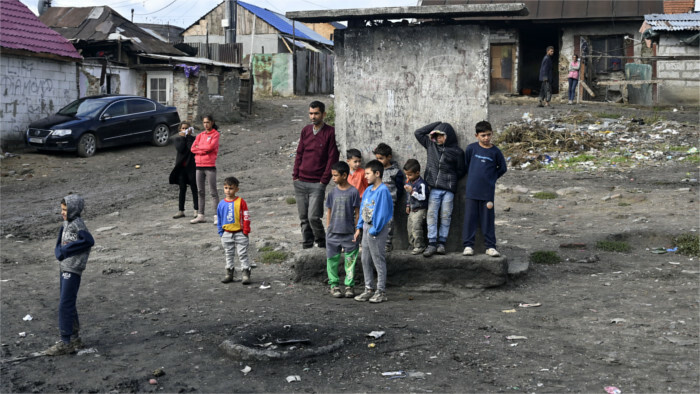The number of fires in marginalised Roma settlements is on the rise, the Fire and Rescue Corps warns. Roma dwellings are in poor condition and it is only a matter of time before another fire breaks out. According to the Office of the Government Plenipotentiary for Roma Communities, it is therefore necessary to allocate more time, but also more money, for prevention.
In Stropkov, residents have faced fire twice in a short period of time, with the most recent fire affecting 12 dwellings and approximately 70 members of the Roma community. However, this town is not the only one - the Fire and Rescue Corps has been registering an increase in fires in Roma settlements for some time now. Its President Adrián Mifkovič says that the problem is mainly installations, but also that their dwellings were not subject to approval or construction procedures.
“They are usually DIY constructions, the problem is also access to the location as well as shortage of extinguishing medium or total absence of boarding area for the fire brigade,” says Mifkovič.
Alexander Daško, the Government Plenipotentiary for Roma Communities, points out that providing alternative accommodation or basic necessities of life to those affected is also a problem. “Every week, there’s a fire somewhere. The state does not have sufficient means for covering all the expenses caused by that.” It therefore sees the need to invest more in prevention. The Association of Towns and Municipalities of Slovakia also agrees, but according to its chairman, Jozef Bozek, it is the state that must intervene first. “We have to set the standard of housing for marginalised communities so to be able to carry out supervision.”
Meanwhile, according to Ingrid Zubkova, Director of the Government Office’s European Programmes Section, they are trying to instil awareness of fire safety in younger generations through the Development Teams project.
Other calls for investment in infrastructure, rental housing and schools could also partly help. The Authority plans to announce these before the end of the year.
Anna Lačoková, RTVS

